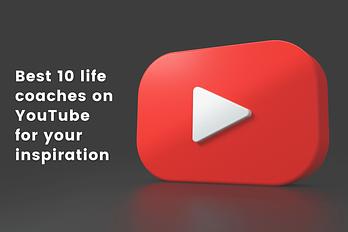January 30, 2021 - Coaching Online
3 tips on writing content to get coaching clients online
Do you have a fabulous looking coaching website that’s slick and fancy but it’s just not helping you get coaching clients online?

It can be a huge let down to have spent a small fortune on a beautiful coaching website that’s not converting visitors to clients
Lesson learnt: Beautiful websites don’t get found. Optimised content does.
You can increase website traffic and improve conversion rates with the right content-writing strategy.
In this post, I share 3 of my best tips so you can write content that gets found on Google and will ultimately lead you to get coaching clients online.
Tip #1
Know what’s important to your potential coaching clients
The first step to get the attention of your target audience is to write articles or blog posts that are of interest and relevance to them. You can get fresh content ideas from several sources, including:
- Facebook and LinkedIn Groups
- News aggregators (like Feedspot, Feedly, Flipboard)
- Ask and Answer sites (like Quora, Reddit)
- Publications / Magazines (issuu is a great platform to search for digital publications)
- Conversations! (yes, talking to people in real life!)
Throughout this post, I’ll use solid examples so that you can see how everything comes together in a real world situation… For this purpose, I’ll use the example of a Divorce Coach. Let’s call her Linda. Linda’s target audience (her ideal coaching clients) are mothers considering divorce, going through a divorce or managing life after divorce.
How does Linda, a Divorce Coach, go about getting content ideas to attract clients online?
- Facebook Group: Linda joins the Divorced Moms on a Mission group. It has about 2,000 members. She scans posts daily to understand what’s going on in their daily lives – their fears, concerns, questions, etc
- Feedspot: Linda searches for articles on ‘divorce’. She finds topics like ‘How do I move on from a long term marriage of over 13 years?’ and ‘Can women divorce over money matters?’. These are interesting topics for her to write about.
- Quora: She searches for questions related to ‘divorce’. The first question that pops up is ‘Is it too late for a 31 year old divorced mom to find love again?’. Another great topic idea!
- Issuu: Linda searches for ‘single mom’ publications and finds a magazine called ‘Overwhelmed: The Single Mom’s Magazine’. It’s a back issue, but there’s evergreen content inside. She uncovers another story idea she can write about: ‘How to forgive your ex’.
Tip #2
Find keywords for your content

Keywords are essential to bring your content to a sharp focus so it gets found online. Now that you’ve got content ideas that appeal to your coaching clients, it’s time to dive in and start writing about everything you know, right?
Well, not just yet…. There’s something really important that you need to do first. When you execute this step, it will set you apart from other coaches who write without a strategy. This is because there are two main objectives of writing great content for your website or blog:
- demonstrate your knowledge and authority on the subject
- get your post ranked on the first page of Google so your website gets traffic
Coaches with in-depth knowledge of the subject matter will have no problem meeting objective number (1).
But unless you already have a huge following and the benefit of followers re-sharing your posts, you’re not likely to get more traffic by writing without an optimisation strategy. Ever heard the question about whether a falling tree makes a sound if there’s no one in the forest to hear it?
If no one finds your content online, let alone read it, your expertise on the topic means nada in your quest to get coaching clients online.
That’s the hard truth and it’s why so many coaches lament about having a super-duper website with ‘great’ content but no sign ups!
So, what is it that you absolutely must do before writing content to get coaching clients online?
You need to research for keywords to use in your articles. Keywords are vital to bring your content to a sharp focus so it gets found online.
Keywords are the words that people actually use when they do a search on Google. Your keywords must be chosen carefully and with thoughtful consideration for successful search engine optimisation (SEO).
You must find keywords that:
- are relevant to your content theme
- have sufficiently high search volume
- will rank easily on Google
The keyword research tool I use
There are several tools that can assist you with researching keywords.
I use a tool called Mangools to help me find keywords that will give my content a competitive advantage over other bloggers. Mangools has many powerful features but the one that helps me search for keywords is the KWFinder feature.
Let’s see how Linda, our Divorce Coach, uses Mangools KWFinder for keyword research.
After getting inspiration from a thread on Quora about whether a divorced mother can find love again after divorce, Linda decides to write a piece on this.
In the Mangools KWFinder tool, she types in ‘love after divorce’ and lets Mangools generate the results.
She’s in luck!
The keyword (or keyphrase in this case) ‘falling in love after divorce’ is ‘still easy’ to rank in Google, according to Mangools’ results. KWFinder also lists variations of the keyphrase that are easy to rank as well, like ‘moving on after divorce’ and ‘finding love again’.
Linda makes a list of these keywords and researches other long tail keywords that she can use throughout her article.
Now on to the next step…writing SEO optimised content that will help you get clients online!
Tip #3
Optimise your content for SEO

Write great content and optimize it for SEO to easily reach your potential coaching clients
If you use WordPress as your Content Management System (CMS), there's a plug-in called Yoast SEO that I highly recommend. It’s like having your very own real-time guide to help you structure your content and prose for SEO optimisation. Think of it as your online SEO guide.
Yoast SEO also analyses your content for Readability and tells you how easy or difficult it is for readers to consume it, according to the Flesch Reading Ease score.
The plug-in works its magic within the WordPress editor. Therefore, typing directly into the editor will help you check in real-time how you're doing for SEO optimisation. As such, you can make content tweaks and improve readability on the fly.
Focus keyphrase density
Manage Your Coaching Practice in One Place
CoachVantage automates your business workflows so you can focus on impactful coaching results.
Yoast SEO plug-in also tells you if you’ve used your focus keyphrase sufficiently or too much in your content. Putting in too much of the keyword in an attempt to cheat the system (i.e. the search engine algorithms) is known as 'keyword stuffing'.
Don’t do this! It’s unnatural and Google will penalise you for it.
Use your keywords (and variations of them) naturally throughout your article. Let it flow in your content as if you’re having a conversation. Yoast SEO analysis will let you know if you’ve overdone it or got it just right.
Back to Linda, our Divorce Coach…
She’s titled her post “Falling in love after divorce made me alive again”. She’s decided to share her personal story for this post. Her words come from the heart and she writes easily.
She refers to Yoast SEO to check how her content is doing for focus keyword density and readability and is pleased with the results.
Time to move on to the next important optimisation… the meta-description.
Meta-description and why it’s important
Other important attributes for SEO include the meta-description of your article. It must contain your focus keyword. The meta-description is the synopsis of your article and appears on Google’s search page.
Your meta-description should succinctly describe what your article is about. In addition, it must be compelling and enticing (and exciting even) so that your target audience will want to read it.
Only then will they click it and voila you’ll attract potential coaching clients online!
Having finished writing her article, Linda now crafts the meta-description. She makes it appealing and ensures it contains her focus keyphrase so that it will attract her target audience online.
Linda’s meta-description reads: “I felt like a failure after divorce. But with help and support, I pulled myself up. Falling in love after divorce made me alive again!”
Can you see how her meta-description is inspirational and also contains the focus keyphrase (in bold)? It’s created with intent to get ranked on Google and to get her target audience – divorced mothers – to visit her website.
Linda checks Yoast SEO and everything looks good! She publishes her article.
Patience and time will do the rest
If you’ve done your keyword research right and followed the Yoast SEO tips, your post has a good chance of getting ranked on Google. This will take time, usually a few weeks, to see results.
While being patient and waiting, you can start writing more great content using these tips to help you get coaching clients online!
Note – there are tools that you can use to help you track the position of your article/post on Google. You can use Mangools SERPWatcher to do this. Enter the keywords that you wish to rank for and check on their position status every couple of weeks.
You’re starting to attract coaching clients online … what next?
When your content starts getting ranked on Google, your website traffic will consequently increase organically. This is the investment pay-off for writing content strategically to get coaching clients online.
And if your coaching website copy is optimised to ‘get the click’, your prospects will be warmed up to speak with you to find out more about your coaching programs.
At the end of every blog post or article, you must lead your prospects in to your ultimate goal – what do you want your reader to do next?
This is known as your call to action.
Do you want them to sign up for your coaching program so you can help them get to the next level and achieve whatever it is they want with you as their coach?
Does your coaching website make it easy for your prospects to book a discovery call with you?
Do you use an online scheduling tool so that your prospects can immediately book a time to speak with you and get it on their calendar?

CoachVantage has a scheduling tool so your coaching clients can book a discovery call without the email ping pong.
Are you still using an email contact form for prospects to contact you and then going back and forth with emails to set up a time to talk?
Bear this in mind:
When they book it, they confirm it!
Savvy coaches use a scheduling tool on their coaching website so that their prospects can book a discovery call immediately and put it on their calendar.
Successful coaches don’t depend on back and forth emails like a game of tic-tac-toe to confirm a discovery call.
People change their minds easily; they are fickle, they get distracted, they find excuses. A hundred and one things can happen to make them lose interest in you and you'll never hear from them again.
However, when prospects lock in a discovery call with you on their calendar, that’s a confirmation of action!
Your prospect has committed to talking to you and if you get that discovery call right, you'll be well on your way to getting your coaching clients online.
Sign up to CoachVantage and see how easy it is for your website visitors to book a call with you with our online scheduling tool.
Want More Coaching Clients?

Get Your Free Guide to Create An Irresistible Lead Magnet
And attract clients who want to work with you.
Get Your Free Guide NowGlen Oliveiro
Founder of CoachVantage
With a pulse on the coaching industry, Glen personally engaged with hundreds of coaches to develop a platform that addresses their day-to-day challenges. A visionary entrepreneur, Glen is committed to revolutionizing coaching practices through the innovative solutions offered by CoachVantage.
You might also like...

Coaching blog: How to start a blog that people will read?

Best ten life coaches on YouTube for your inspiration
